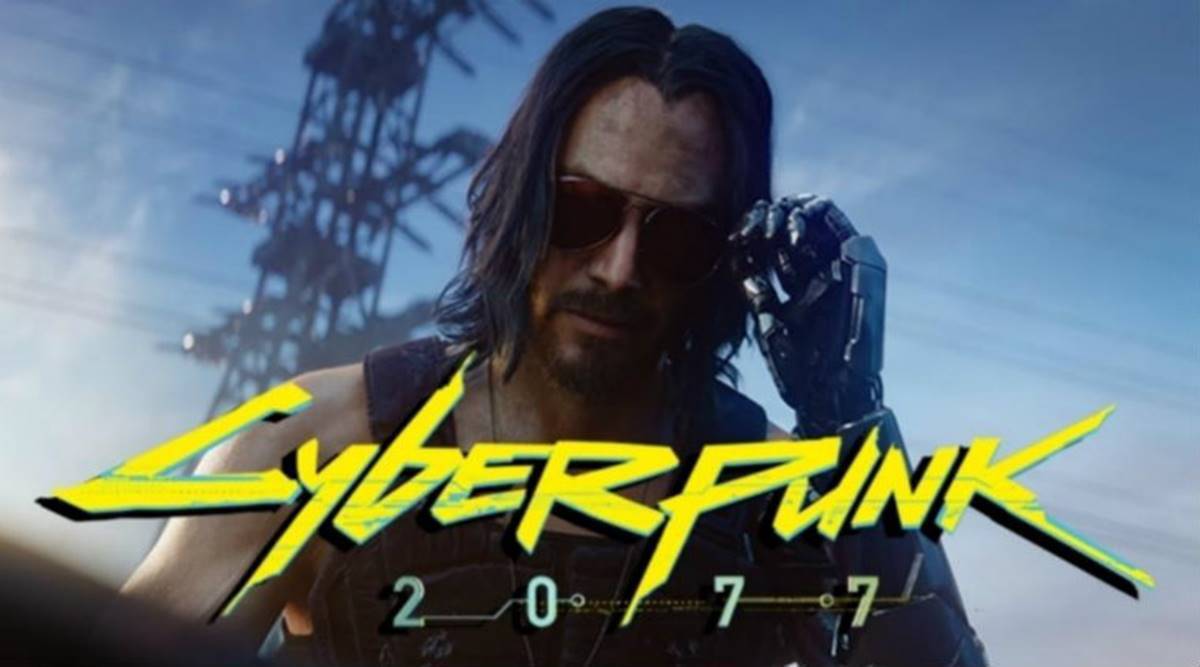For gamers, the holiday season is the most anticipated time of the year. With many tech companies looking to take advantage of the commercialism brought by Christmas, a number of highly anticipated video games are released in the weeks leading up to the holiday. This year, the game that got many excited was Cyberpunk 2077.
This was the case for various reasons. The game took almost a decade to create, indicating that developers took their time and put a lot of care into the final product. Top names were also associated with the development of Cyberpunk 2077, including the creator of The Witcher 3, one of the best games ever created in the opinions of many, CD Projekt Red. This game was also slated to star Keanu Reeves as the game’s protagonist. Combine all of this, and no wonder why eight million people pre-ordered the game.
However, when the game finally was released on December 10th, many people were disappointed. How did a game with so much going for it fail so miserably? Well, when you actually look more into it, it becomes pretty clear.
What Was The Problem with Cyberpunk 2077?
To say there was only one issue with the launch of Cyberpunk 2077 would be incorrect. There were a number of problems with the title, all of which led to this failure.
Initial Positive Reviews
Initially, reviews were great. The gameplay looked good, the graphics were realistic, and the characters had a lot of depth and personality. These are the makings of a good game, especially a game of the year candidate as many thought Cyberpunk 2077 would be. But, as more and more people began to play, the issues with the game became more apparent.
Then, the Issues Became More Clear
The game saw a tremendous amount of glitches, making the game unplayable at moments. Some even claim that their saved gameplays become corrupted if the file becomes too large. There were also some scenes (due to flashing lights) that caused seizures, which resulted in the company to take action.
On December 18th, Sony removed Cyberpunk 2077 from its Playstation store, offering refunds to anyone that purchased it. The game will not be available until all major problems are resolved.
Microsoft is also issuing refunds to users, in addition to GameStop (even for physical copies that were opened, which is unlike the retailer). Additionally, GameStop has been told to make all returned copies as “defective” before transportation to warehouses.
Having these companies take such drastic measures to accommodate customers is a clear sign that the game is a disaster. Well, investors at least see it that way, as the stock of CD Projekt Red dropped 15% upon the news. Currently, the company’s stock is down over 55% for the month of December.
The Developer Acknowledges Mistakes
The Polish-based developer has announced that updates, which would improve the issues of the game, are on the way. But, is it too late? Further, why were these issues unaddressed in the first place? In addition to being in development for a decade, it is estimated that the project had over £300 million in funding. Yet, the numerous bugs and issues are scattered throughout the game. There has to be an underlying issue, and there is.
How Did These Issues Go Unaddressed?
It is clear that the company felt pressure from external factors, such as investors and the general public. As a result, they may have rushed the delivery of the project in order not to postpone the release yet again. (The release of the game had been delayed twice since April). In doing so, the company may have sacrificed the user’s experience for profits, as they would have hoped that users would just deal with the game’s shortcomings.
CD Projekt Red over-promised and under-delivered, ultimately. There was so much hype surrounding the game. Ten years in the making; the company’s track record; Keanu Reeves. In the minds of many, this was a recipe for success. Knowing this, the Polish company may have gotten careless in crunch time, as it was overwhelmed. This can be seen based on reports that CD Projekt Red made employees work overtime for months during the pandemic to assure it would meet this December release deadline.
This is a Trend in the Gaming Industry
This is not an isolated incident in the game industry. In fact, it is an ongoing trend. In 2018, Bethesda Studios released the highly anticipated Fallout 76. Saying that I am a huge fan of the Fallout series would be an understatement. Back when I was a serious gamer, I put serious man-hours into each installment of the Fallout franchise. Each game prior to this release met tremendous reviews, winning several game-of-the-year awards respectively.
However, Fallout 76 did not experience this same success. In fact, when it was first released, the game received pretty awful reviews. Many claimed the gameplay was rather poor and disinteresting, which disappointed many loyal to the Fallout franchise. This also occurred with other online-based games, such as The Division and Grand Theft Auto Online, upon their own releases. There were many complaints about its online gameplay at launch.
However, for all the titles I just mentioned, developers constantly made updates to the game, making the online gameplay very enjoyable for users. For example, Grand Theft Auto Online is still one of the most played games today, and it was launched almost a decade ago. Nowadays, developers appear content with releasing awfully performing games and improving them later on. They underdeliver and make up for it with updates down the line.
How Does This Affect Customers?
Some may be optimistic about this. These companies are owning up to their mistakes and making drastic improvements to please customers. Where exactly is the issue?
Customer Expectations
Gamers spend around $60 for a newly launched title. That is by no means a cheap price point, especially when these games are digital. Digital games avoid having to use packaging and shipping and using a third-party vendor like GameStop. Eliminating the fees associated with this improves developers’ profit margins, yet they continue to charge the same amount for the product.
So, even though it can be argued that developers are overcharging for their product, gamers are still more than willing to pay the price to play their product. However, that is only the case when the developer delivers on their promise of a quality game. With gamers paying so much for these titles, it is only right for them to expect the game to be in its best condition.
Are games expected to be perfect at launch? Absolutely not, but it should be clear that developers at least tried their hardest to make that so. In reality, unfortunately, that is not the case. Developers constantly underdeliver with their titles to please investors, not customers. They want to meet deadlines (which they set themselves ironically) and push out whatever they can to do so.
Alienating Loyal Fans
As a result, developers are aggravating gamers who are fans of theirs, which may result in these companies alienating them. If a game that was unplayable at launch improves tremendously through several months/years of updates, it may not be enough to draw back fans who lost interest around the time of launch.
As a gamer, I have first-hand experience with this. In high school, I picked up The Division from the used game rack at a local GameStop. It had cost around $15, which shocked me because the game was barely a year old. I played it and thought it was very enjoyable. It confused me why the game was so cheap, since it was newer, fun, and had a lot of hype at launch. Well, most of the elements of the game I enjoyed were actually updates made to the game after launch.
In a sense, everything I liked about the game was not even available when the game was released. Thus, those who bought the game when it first came out might have gotten bored with the title and either sold it or never played it again. Consequently, they never got to experience the new updates that improved the title tremendously. This is what occurs when titles are mediocre at launch. With so many options for gamers, they are not willing to wait around for a company to make improvements to a game that should have been better upon release.
Wrong Priorities
Video game developers are ultimately prioritizing short-term gains over long-term success. This near-sightedness in the long-run will hurt the brand and image of these companies. In the case of CD Projekt Red, they had the reputation of being the developer of The Witcher 3, which many see as one of the greatest games ever made.
That gave the company some prestige and legitimacy, which made gamers trust them and be loyal to them. However, with the release of Cyberpunk 2077, they harmed that relationship and their brand. Now, CD Projekt Red is associated with releasing unfinished games, which may lead to gamers being hesitant about buying another title from them in the future.
Takeaways
There are two key takeaways that you can learn from the failed release of Cyberpunk 2077. All of them show you how to properly run a business and how to prevent easily avoidable failures and mistakes.
Under-Promise, Over-Deliver
CD Projekt Red promised the world that they would be releasing one of the best games of 2020. Instead, it was one of the biggest failed game launches of recent memory. In this case, the developer over-promised to its customers and then under-delivered with a mediocre product. This set expectations sky-high, so anything less than great would be a disappointment. Unfortunately for CD Projekt Red, Cyberpunk 2077 was far from great.
In business, you should look to under-promise and over-deliver. This sets expectations as low as possible, which allows you to always beat expectations. You never want to set individuals up for disappointment, especially if those individuals are loyal, paying customers. Be realistic with yourself and the goals you have set. It is better to be honest with others about being unable to meet a deadline as long as the finished product is worth it.
Never Be Short-Sighted
Game developers are prioritizing short-term profit at the stake of long-term success. They are pleasing investors by meeting deadlines with poorly finished titles. At the same time, however, they are alienating entire fanbases that have waited months or years to play the game. This ruins the relationship the company has with its customers, while also harming its brand and image.
If you want to run a business successfully for a long time, do not follow this approach. Instead, have a long-term mindset. Think of the drawbacks of every decision you make, especially for your company’s or even your own future. This even applies to investing and other walks of life. These developers did not consider the long-term ramifications of misleading their customers, and they may very well pay the price for it down the line.

